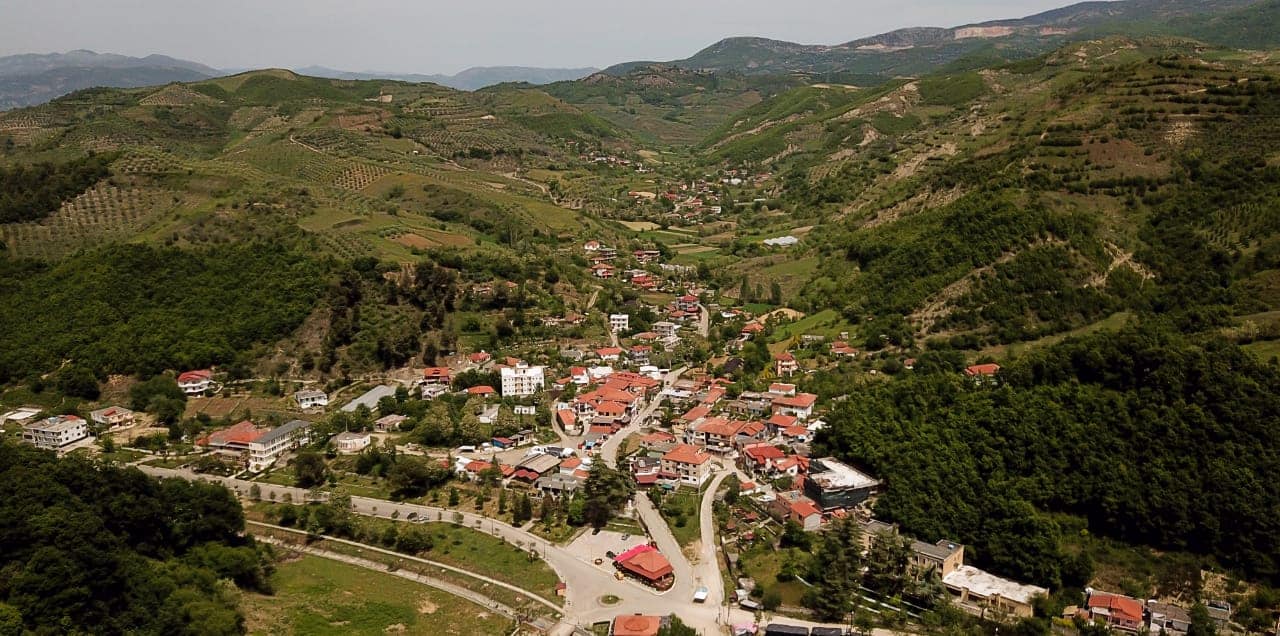Nevila Gjata
The Democratic Party has not yet officially published its program on its official website, but its leader, Sali Berisha, has presented an ambitious economic plan for the next four years, should he win the elections.
Faktoje.al has focused on the three main promises of the DP for the first 100 days (the ones most directly affecting citizens) to understand the cost and, importantly, how feasible it is to achieve them in such a short time.
The promises include setting a minimum wage of 200 euros, increasing pensions above this amount by 20%, drastically reducing electricity prices to 7 lek per kilowatt for citizens and 6 lek for small businesses, and halving the tax burden on fuel.
In collaboration with economic expert Ilir Brasha, Faktoje.al has analyzed two time periods: 100 days (the promised timeframe) and one year, to estimate the costs.
Halving Fuel Taxes
According to expert Ilir Brasha’s calculations, if the promises to halve fuel taxes are implemented, the state budget would face a revenue shortfall of around 22.6 billion lek annually. For the first 100 days of governance alone, the cost of this measure (which represents 27% of the year) would reach approximately 6.2 billion lek
| Level in Lek | * TR 2024 (Lek) | TR – DP Promises | Difference in Lek | |
| Imported Fuel | 657,562,722 | 657,562,722 | – | |
| Excise Tax (Lek) | 38.8 | 25,513,433,631 | 12,756,716,816 | (12,756,716,816) |
| Carbon Tax (Lek) | 3 | 1,972,688,167 | 986,344,084 | (986,344,084) |
| Circulation Tax (Lek) | 27 | 17,754,193,506 | 8,877,096,753 | (8,877,096,753) |
| TTL without VAT | 45,240,315,305 | 22,620,157,653 | (22,620,157,653) | |
| VAT | 9,048,063,061 | 4,524,031,531 | (4,524,031,531) | |
| TTL with VAT (Year) | 54,288,378,366 | 27,144,189,183 | (27,144,189,183) | |
| TTL with VAT (100 days) | 14,873,528,319 | 7,436,764,160 | (7,436,764,160) | |
Source: Ministry of Finance & Customs Directorate
But that’s not all. If the VAT on fuel is also cut in half, state revenue losses would deepen further by around 4.5 billion lek annually. Altogether, the planned tax reductions on fuel are projected to cost the budget about 27 billion lek per year, and nearly 7.4 billion lek in the first 100 days alone.
A separate analysis by the ALTAX Center estimates that the fuel tax cuts proposed by the Democratic Party could lead to a potential revenue shortfall of 20 to 30 million euros.
Electricity
The Democratic Party, through leader Sali Berisha, has also promised a sharp drop in electricity prices: 7 lek per kilowatt for households and 6 lek for small businesses. But what would the state budget cost?
Assuming (since there is no concrete figure) that 90% of families consume less than 700 kWh per month (and currently pay a rate of 8.5 lek), and calculating an average price of 9.5 lek for businesses (in the best-case scenario, as even from 2024 collections the resulting price is approximate), the reduction of the price to the promised levels would create a revenue shortfall, which according to Brasha, would amount to around 20 billion lek per year.
Most of this budgetary loss would come from the reduction of the price for businesses, which have higher consumption and higher tariffs. If the reduction were applied only to household consumers, the cost to the budget would be around 6.5 billion lek per year.
The total loss for the first 100 days from the reduction of the electricity price would amount to 5.4 billion lek.
‘This promise appears attractive to consumers, but it brings with it a heavy bill for public finances, which would require either additional subsidies from the budget, or costs covered through debt, other taxes, or budget cuts in other sectors,’ says economic expert Ilir Brasha.
Pensions
It has also been promised that all payments received by an individual or family will be higher than 200 euros. Berisha has simultaneously promised an increase in pensions above this value. If the law on the minimum living wage is introduced, not only the pensions below this value would change, but also those with a higher amount.
As of September 30, 2024, there are 624,689 pensioners from urban areas with an average pension amount of 18,568 lek and 92,541 pensioners from rural areas with an average pension amount of 11,089 lek. While there is no detailed data on pensions by bands, the calculations in this case are made based on the average and the official report of the ISSH for 2023.
Expert Ilir Brasha has in this case calculated two possible scenarios: a) Proportional increase, where all pensions increase while maintaining the differences between them. b) Semi-proportional increase, where pensions increase, but the current differences between them are only partially preserved. The cost still turns out to be large. For just the first 100 days, it would amount to around 35.5 billion lek.
Conclusion
According to expert Ilir Brasha, the overall analysis shows that, from a fiscal perspective, it is not feasible to fulfill at least the three key promises. The budgetary cost in this case is relatively high, reaching about one-fifth of the total annual state revenue.
According to him, in order to fulfill the promises, the budget deficit must be increased and consequently also the public debt, because the state budget is unable to absorb the entire amount of around 48 billion lek for 100 days and around 163 billion lek for the full year (for all three promises).
‘This could be realized over a longer period and not immediately, but gradually by adjusting other budget items as well,’ says Brasha.










